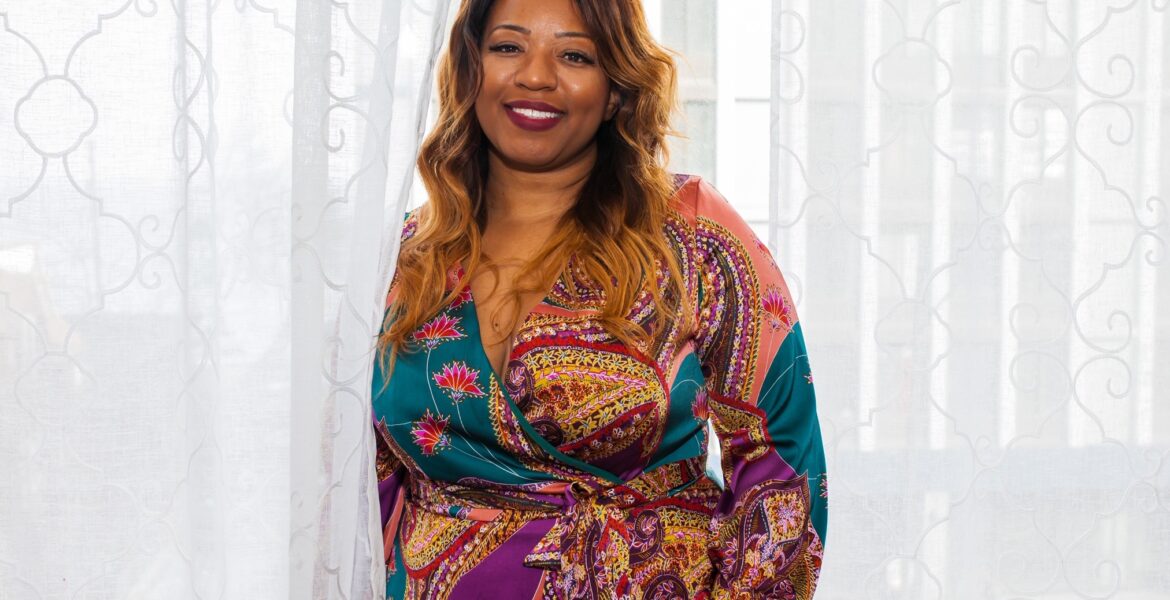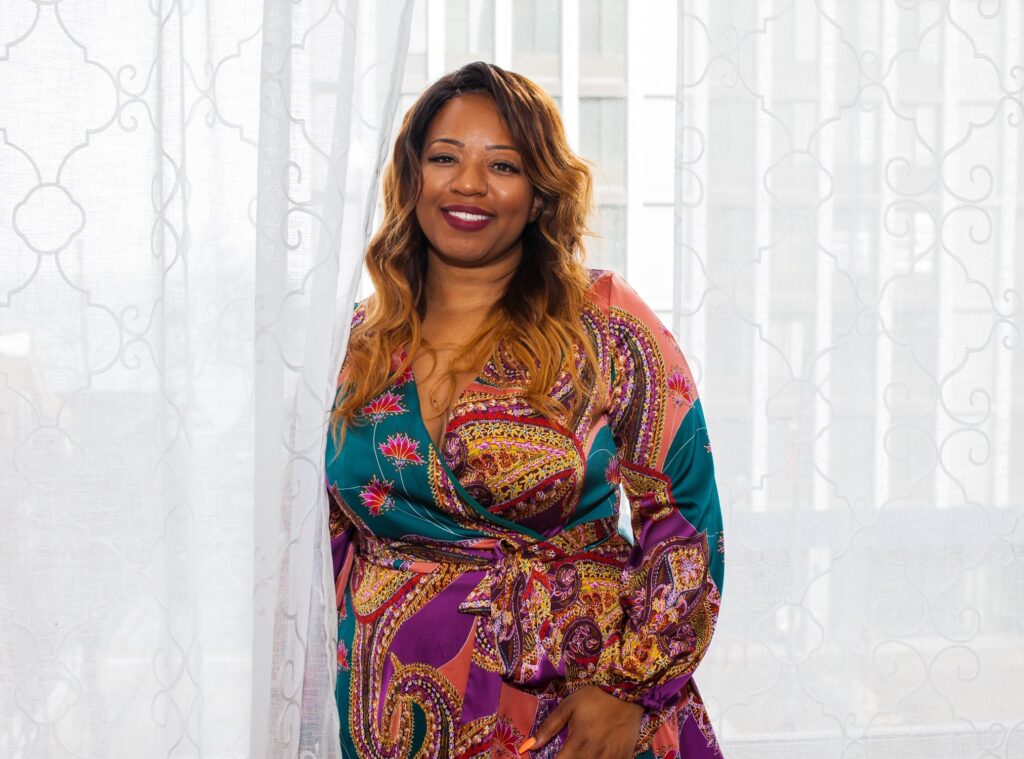Dr. Amera McCoy, an Industrial-Organizational Psychologist, is the Owner and Founder of McCoy Consulting LLC. Prior to starting her own business Dr. McCoy held leadership roles with top financial companies including JPMorgan and CME Group where she gained unique hands on experience with leadership, diversity and inclusion initiatives, and performance management prior to exiting the corporate world for small business ownership. She shares with Formidable Woman Magazine, her new class to help businesses build diversity and inclusion programs.
FWM: How are you helping businesses during the pandemic?
Well, the answer is in many ways. Early on in the pandemic, we started releasing a monthly newsletter that outlined open business grants. The newsletter brought in many client engagement and questions, which led to several consulting and coaching opportunities. As of late, many of our clients have been focused on leveraging our coaching services, which include coaching their senior executives on being effective virtually. Having a virtual presence and virtual performance management. Our company has also pivoted ourselves to put many of our in-person workshops online for access by current and new clients. We still see a lot of interest in our workshop for management conversations, focusing on having difficult conversations with employees of all personality types. This popularity arose from clients needing to lay people off, furlough, or even attempt to re-hire former employees who may have moved on.
You have launched a new class to help businesses build diversity and inclusion programs. Tell us about the program.
Yes! I am really proud of this program because diversity and inclusion have always been a passion for me. I have worked in organizations and saw first hand there is little understanding of what to do first in diversity and inclusion. The lack of direction leads to mimicking other programs, and all programs are not one size fits all. It’s easy to stand up and say we care about diversity at our company, but it is challenging to build an effective, engaging program that fits your current and future culture. That’s the key; if your culture doesn’t shift to the integration of diversity and inclusion, the program will not evolve or survive; it will be a remarkable statement with no action behind it.
FWM: As an Industrial-Organizational Psychologist, why is this program critical to business success in 2020?
Having a Diversity and Inclusion program is crucial for attracting new talents. The workforce is more socially conscious today than ever before. As a result, people choose to work for socially conscious organizations that carry the same morals they do. Just think about pre-pandemic; people were seeking out companies that understood the importance of work-life balance and having the ability to leverage work from home. Many companies failed to set up those opportunities and were forced to do so in this new environment. The companies that did offer it had a much easier transition into fulltime work from home. It shows us all it wasn’t impossible to do these jobs from home; it just wasn’t the companies preference or priority to offer it. The same goes for diversity and inclusion; if it wasn’t a preference or focus to create a program before the pandemic, it should be at the top of your list during these times of civil unrest. Many of your future employees are the ones marching and protesting today. So now is a time to show them how your company will address recruiting, retaining, and promoting diverse employees in the coming years.
FWM: What is the single biggest mistake that companies make with their diversity and inclusion program?
The single biggest mistake organizations make when it comes to D&I programming is that they assign it to a senior leader that is not a program builder. Senior leader support is necessary for D&I programs, but building a program is different from running one. When assigning a senior leader, if they are not a person with a project management background, they will struggle to get the program launched, and it is not for lack of talent on the senior leaders part. As with any other program, it takes a project manager, program managers, and a committee to establish the vision, mission, metrics, and outputs of a diversity program before assigning someone to run it. Just labeling someone as a responsible party for it with a lack of support or budget to build is saying that it is not a priority. The likelihood of it getting off the ground is significantly reduced, and usually, if that person leaves the company, there is no program running at all. Unfortunately, it is many corporations’ habits to spend money on programs where regulators focus. Diversity and inclusion programs are often bypassed because they aren’t required to have, and therefore the investment is optional.
FWM: Share key areas of concern for clients during this pandemic and how you are helping them to solve them.
I have found that clients are focused on two critical areas during the pandemic. First, keeping employees safe and engaged this is both physically and mentally. As the pandemic evolves week to week, we learn new ways to protect ourselves and our loved ones. Conscious companies are putting forth the effort to relieve some of that stress with flexible work arrangements, including working from home. High-touch jobs offer employees ongoing training on protecting themselves with customers and leveraging their Employee Assistance Programs to provide counseling and support perks.
Second, building and implementing diversity and inclusion programs. This, of course, became a hot topic as the pandemic settled into our daily lives. We began to see racial disparities in a new light. Whether that be the number of black and brown people impacted by the pandemic or the constant news of racial inequality in our cities. A new age civil rights movement launched in the middle of this pandemic and corporations are forced to look at how they have hired, retained, and promoted diverse individuals. As a result, you see a scramble for companies to put something meaningful together to show their solidarity towards the advancement of business diversity. Diversity, equity, and inclusion have always been a passion area for me, and over the years, I have offered meaningful contributions to programs in places I worked previously. During the pandemic, I pivoted my business to find a unique way to help build and implement D& I programs through online course delivery. It has been fun to design, create, and engage with clients over the last few months.
FWM: What are you most proud of?
Lately, I have been incredibly proud of my company. Pivoting our business model to a fully online class format has been chaotic and fun. We have all learned so much in such a short time it tells me that we are capable of so much more than we think. In February, I didn’t know how 2020 would turn out, and this last quarter approaching, I am happy to say my family, myself, and my company survived 2020.
FWM: Share your new programs/initiatives.
Our latest initiative is the Diversity and Inclusion Program Builder, which helps build your program’s framework and assist with implementation. I am very hands-on in this program since it is evolving and requires some customization; each client receives two hours of direct coaching to discuss their D&I program nuances, concerns, and needs. We also release one new business class monthly, you can find out more information or sign up for classes on our website at


